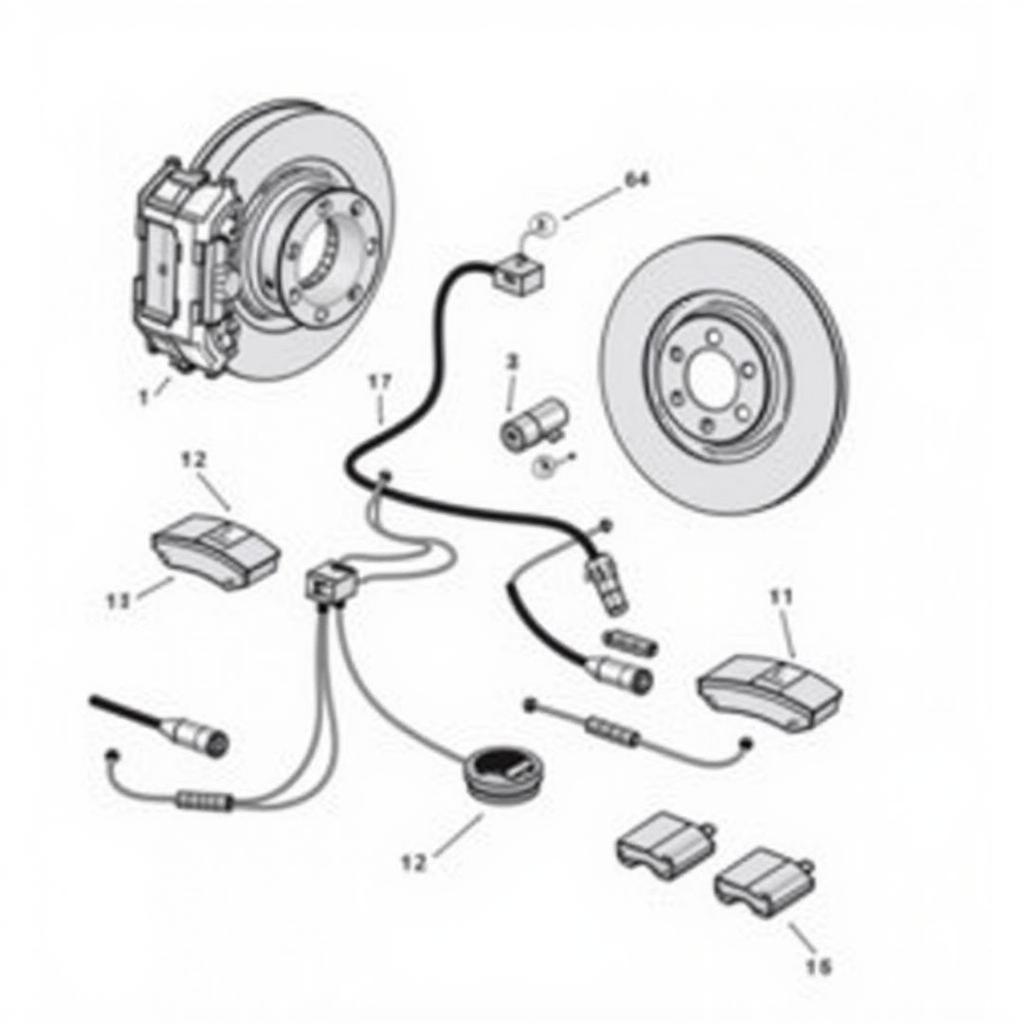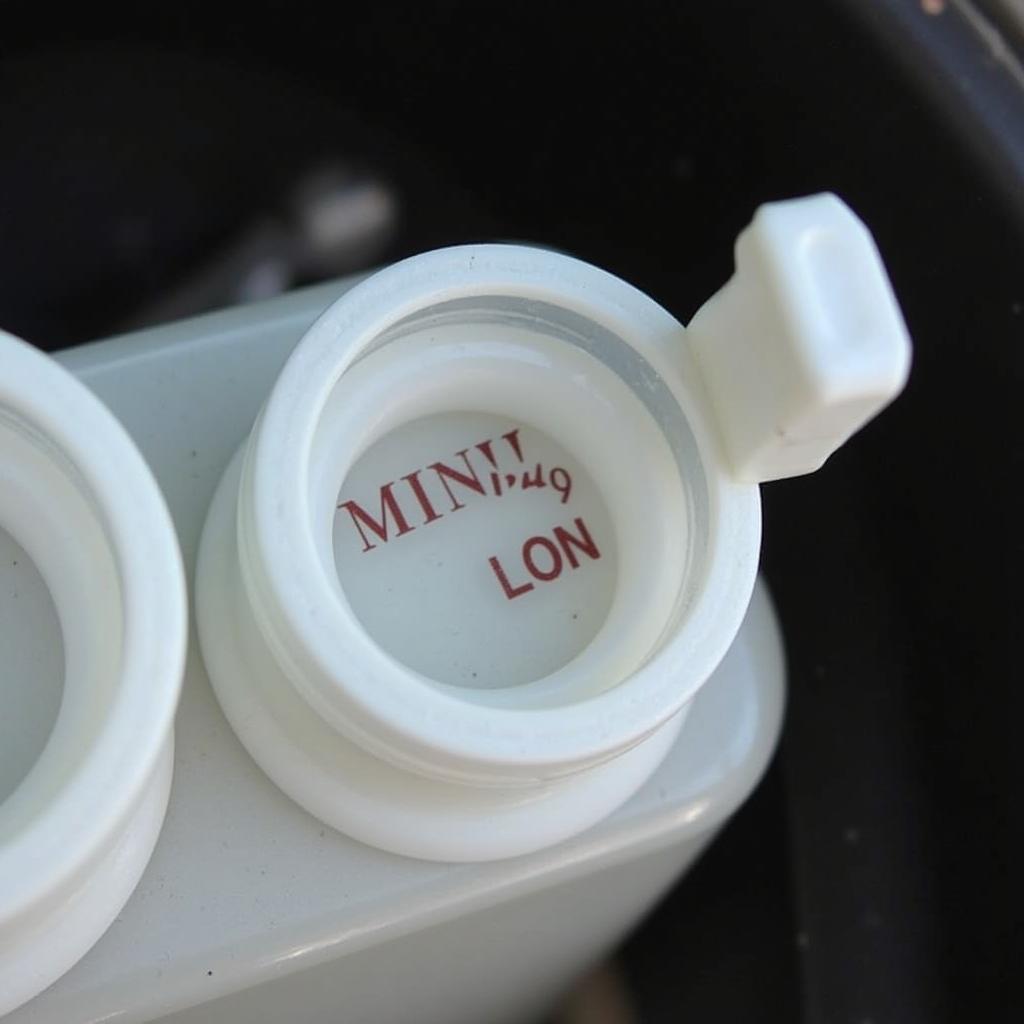Warner brakes are critical components in many vehicles, contributing significantly to safe and efficient operation. When these systems malfunction, it can lead to significant safety concerns and costly repairs. This guide provides comprehensive information on diagnosing, troubleshooting, and resolving common Warner brake issues, empowering you to understand and address these problems effectively. We’ll explore various diagnostic techniques, including remote software solutions, and provide valuable insights for maintaining optimal brake performance.
As a specialist in automotive electrical engineering with a focus on remote diagnostics, programming, and software installation, I understand the intricacies of these systems and the challenges drivers face when issues arise. warner brakes and clutches are complex systems, and understanding their functionality is crucial for effective troubleshooting.
Understanding Common Warner Brake Problems
Several common issues can affect Warner brake systems. These include:
- Noise: Unusual noises, such as squeaking or grinding, can indicate worn brake pads, issues with the calipers, or problems with the rotor.
- Reduced Braking Power: A decrease in braking power can be a serious safety concern and often stems from leaks in the brake lines, a failing master cylinder, or issues with the ABS system.
- Brake Pedal Pulsation: A pulsating brake pedal often suggests warped rotors, requiring resurfacing or replacement.
- Warning Lights: Illuminated warning lights on the dashboard, such as the ABS light or brake warning light, signal potential problems within the system.
Diagnosing Warner Brake Issues Remotely
Remote diagnostics and software solutions have revolutionized automotive repair. With specialized tools, technicians can access vehicle data remotely, diagnose problems, and even implement software updates to address specific issues. This approach can significantly reduce diagnostic time and get you back on the road faster. warner brake and clutch issues can often be diagnosed remotely, saving you time and money.
Why is my Warner brake light on?
A lit Warner brake light often indicates a problem within the braking system. This could range from low brake fluid to more serious issues like a malfunctioning ABS system. It’s crucial to have the system inspected immediately to ensure your safety.
How can I fix my Warner brake issues?
Fixing Warner brake issues depends on the specific problem. Simple fixes might involve topping off brake fluid or replacing worn brake pads. More complex issues might necessitate replacing components like the master cylinder or calipers. Remote diagnostics and software updates can sometimes resolve software-related problems without physical intervention. warner brake control systems can sometimes benefit from software updates.
Maintaining Your Warner Brake System
Regular maintenance is essential for optimal brake performance. Routine inspections, fluid changes, and timely replacement of worn components can prevent more serious and costly repairs down the road.
“Preventive maintenance is key to avoiding costly repairs and ensuring the longevity of your Warner brake system,” says John Smith, a certified automotive technician with over 20 years of experience. “Regular inspections and timely part replacements can significantly reduce the risk of unexpected breakdowns.”
What are the signs of a failing Warner brake master cylinder?
Signs of a failing Warner brake master cylinder include a soft or spongy brake pedal, a low brake pedal, or difficulty stopping the vehicle. Leaking brake fluid around the master cylinder is also a clear indicator of a problem. warner brakes fot dodge ram 2500 are often subject to heavy use and require diligent maintenance.
Utilizing Remote Programming for Warner Brake Systems
Remote programming allows technicians to update the software that controls various aspects of your Warner brake system. This can improve performance, fix bugs, and even enhance safety features. This advanced technology is becoming increasingly prevalent in modern vehicles.
“Remote programming and software updates can address a variety of Warner brake issues, from improving responsiveness to fixing glitches in the ABS system,” notes Jane Doe, Lead Software Engineer specializing in automotive applications. “This cutting-edge technology allows us to enhance brake performance and safety without extensive physical intervention.”
Conclusion
Understanding and addressing Warner brake issues is crucial for maintaining vehicle safety and performance. From routine maintenance to leveraging advanced diagnostic and programming techniques, staying proactive can prevent costly repairs and ensure reliable braking. Remember to consult with a qualified technician for any brake concerns, particularly if you experience a decrease in braking power or warning lights illuminate on your dashboard. Proper maintenance and timely repairs will keep your Warner brake system functioning optimally for years to come. warner brake pads noisey 1 day after installing could indicate an installation issue.
FAQ
-
How often should I have my Warner brakes inspected? It’s recommended to have your brakes inspected at least once a year or every 12,000 miles.
-
What is the average lifespan of Warner brake pads? Brake pad lifespan varies depending on driving habits and conditions but typically ranges from 30,000 to 70,000 miles.
-
Can I replace Warner brake pads myself? While possible, it’s generally recommended to have brake pad replacement performed by a qualified technician.
-
What causes a spongy Warner brake pedal? A spongy brake pedal often indicates air in the brake lines or a failing master cylinder.
-
How much does it cost to replace a Warner brake master cylinder? The cost varies depending on the vehicle and location, but it typically ranges from $200 to $500.
-
What are the benefits of remote diagnostics for Warner brake systems? Remote diagnostics can save time and money by quickly identifying the root cause of the problem.
-
How can I prevent premature wear on my Warner brakes? Avoid aggressive driving habits, such as hard braking and rapid acceleration, to prolong the life of your brakes.


